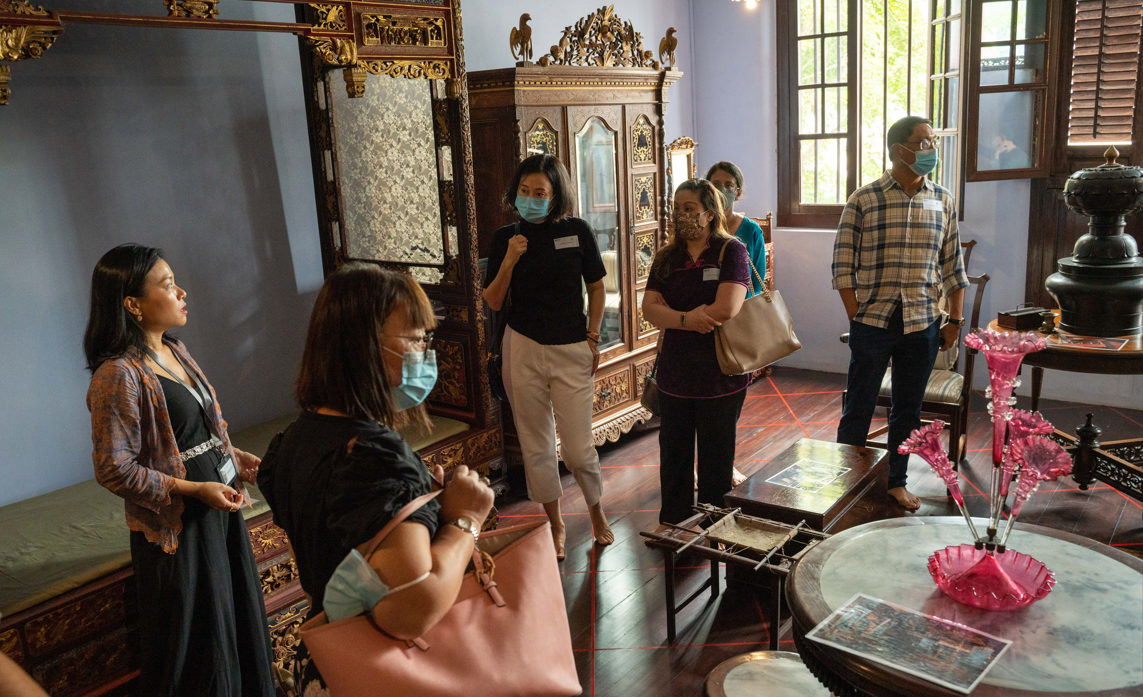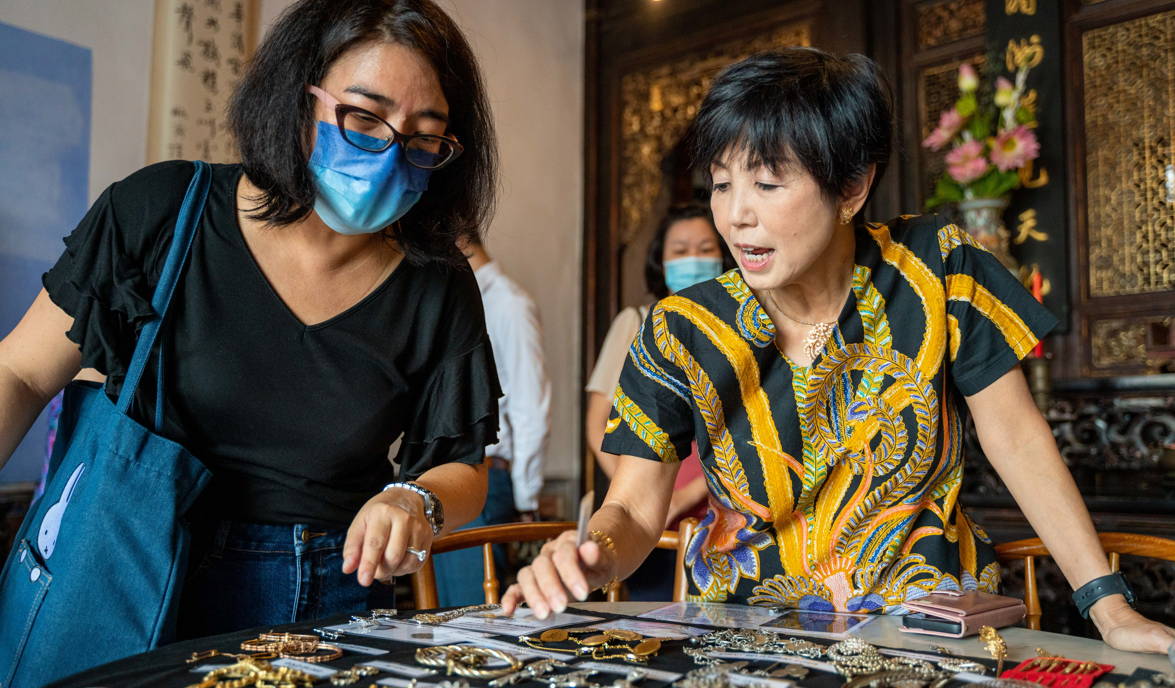At an NUS Giving Experience Leadership Series session, guests toured the NUS Baba House, a beautifully restored ancestral home of a Straits Chinese family built in the late 1890s.
On 19 October 2022, the National University of Singapore (NUS) invited guests to explore one of the community’s landmarks, the NUS Baba House, as part of its NUS Giving Experience Leadership Series.

Guests enjoyed a special performance by The Peranakan Voices, as part of of their tour of the NUS Baba House.
During the session, which was themed ‘Beyond the Horizon – A Peranakan Story, featuring NUS Baba House’, the guests toured the three-storey townhouse in Singapore’s historic Blair Plain district. Built in 1895, it was the ancestral home of the Peranakan Chinese Wee family. NUS acquired it in 2006 with funds donated by the philanthropist Ms Agnes Tan, in memory of her late father, Tun Tan Cheng Lock.
In 2007, the NUS Museum, NUS Department of Architecture, Urban Development Authority (URA) and The Peranakan Association of Singapore (TPAS) led an effort to restore the property as a heritage house which contextualises Peranakan Chinese material culture and aesthetics within a domestic setting.

Guests enjoyed an exclusive guided tour of the NUS Baba House.
Its interior now offers an experiential journey into a Peranakan Chinese family home of the early 20th century. The guests’ tour spanned the ground floor, which includes an open courtyard, reception hall, ancestral hall and kitchen, the second floor, with its master bedroom and rear bedroom, and the third floor, which was another bedroom but is now a gallery for exhibitions and projects that foster contemporary engagements with traditional Peranakan culture. The guests also viewed the Straits Chinese Collection, an assemblage of over 2,000 antiques and objects, including furniture, wood carvings, porcelain, photographs, documents, books, costumes, textiles, paintings, lacquerware, electrical appliances, kitchen utensils and fixtures. Many of these are displayed in the house in their original context.
The NUS Baba House partners with the Urban Redevelopment Authority (URA) and The Peranakan Association of Singapore (TPAS), and various NUS faculties, to promote understanding, discussion and research on a wide range of Peranakan-related topics, such as its heritage, culture, conservation and identities. As a conserved heritage building, the NUS Baba House presents opportunities for education and research on conservation techniques, regulations, and approaches which serves as a valuable case study for vernacular structures in the region, as well as the issue of sustainability as applied to heritage buildings. The NUS Baba House also undertakes constant research to obtain archival records, oral histories, as well as artefacts, to ensure the continual relevance of the heritage house in terms of presenting its multi-layered histories through the social, commercial, architectural, art historical and geographical lenses.
Through engaging talks, tours, and events exploring a variety of topics concerning artistic practices, heritage and conservation, cultural practices and identity making, the NUS Baba House continues to actively engage the community as a nexus that bridges the NUS community, various stakeholders, non-profit organisations and members of the public. In addition, the NUS Baba House actively collaborates with NUS faculty members to design and execute curriculum-specific programmes for NUS students and offers internships as well as volunteering opportunities to nurture youths to generate possibilities, ideas, and solutions in charting Singapore’s future in arts and heritage by equipping them with industry-relevant skills and practices.

A guest learning about Peranakan-inspired artisan jewellery at a booth organised by TPAS.
During the NUS Giving Experience Leadership series session, which lasted about two hours, the guests also heard from Ms Clara Ang, Programmes Manager for the NUS Baba House. Guests also enjoyed a special cultural experience led by TPAS which included performances by The Peranakan Voices, learning about Peranakan-inspired artisan jewellery and beadworks at display booths, and Peranakan cuisine specially curated for them.






